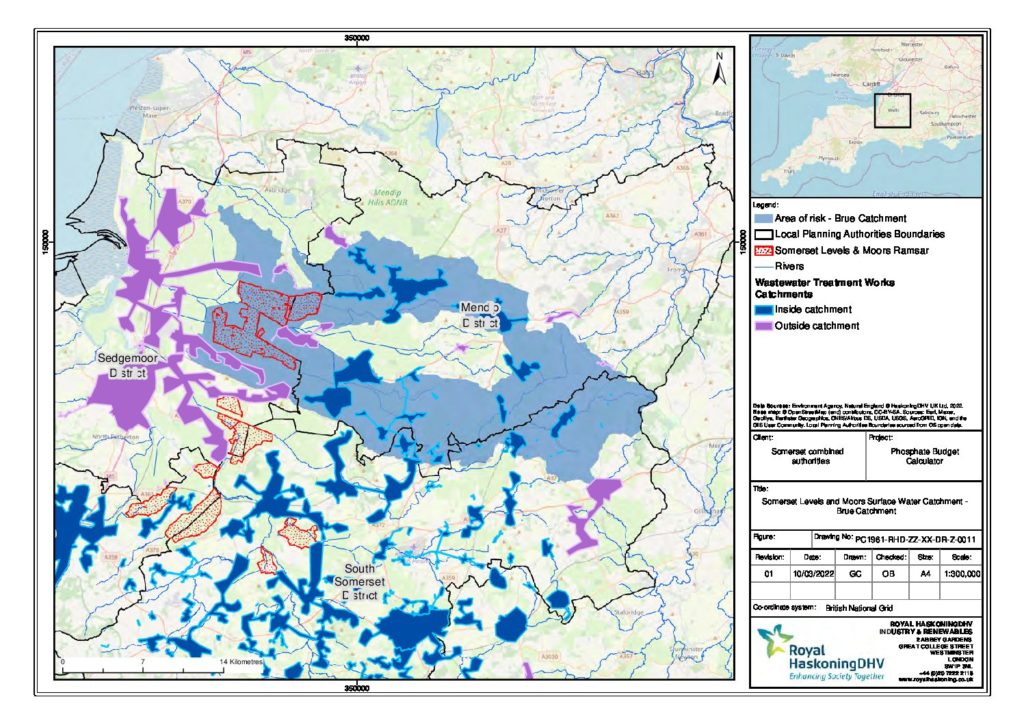Somerset Council has approved a Nutrient Credit Scheme for the River Brue catchment potentially enabling developers to re-start residential housing projects and other developments on hold due to the high level of phosphates found in our water courses.
As with similar mitigation schemes covering other catchments in the unitary area the scheme will allow developers and investors to purchase mitigation credits to offset the negative impact of phosphate emissions resulting from construction projects.
The requirement to demonstrate that proposed developments will be phosphate neutral follows advice from Natural England in August 2020 of the need to undertake a Habitats Regulations Assessment (HRA) proceeding to an Appropriate Assessment on individual projects, before planning applications that may lead to additional phosphates in Somerset Levels and Moors Ramsar site can be determined.
The scheme in Somerset’s East area involves the removal of livestock from buildings at a farm in Prestleigh, Shepton Mallet, replacing the buildings with woodland – if planning permission for an alternative use is not approved.
This would generate 142.7kg of phosphate mitigation credits – sufficient for around 1,400 houses.
Cllr Ros Wyke – Lead Member for Prosperity Assets and Development, said:
“Somerset Council is working hard to minimise delay and uncertainty around planning applications with a county-wide nutrient strategy to identify both short term solutions to help clear the current backlog of planning permissions and longer-term solutions to address the existing and future growth commitments. The phosphates issue has prevented the determination of a significant number of planning applications across the county while solutions are being sought so this Nutrient Credit Scheme is extremely welcome news.”
The scheme is being administered by the BNG Partnership who are welcoming expressions of interest from developers. For more information, visit BNG Partnership or email angus.collett@bng.eco or call 07971 140072.
You can find out more about on our work on phosphates on our website – Phosphates (somerset.gov.uk)

